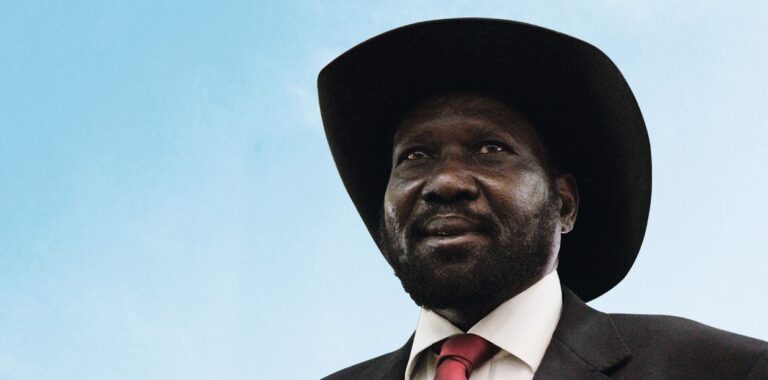President Salva Kiir’s recent government reshuffles appear designed to benefit him personally and solidify his grip on power. These moves also seem to favor his close circle of political allies and their families. While many South Sudanese celebrate these changes, it is unclear if they understand who truly benefits. Since independence in 2011, a sense of civic responsibility has diminished, leading some citizens to celebrate Kiir’s actions without questioning who ultimately profits from them.
The President’s strategy involves distributing wealth among elites to maintain their loyalty. He has relied heavily on presidential decrees and military intelligence to govern, leveraging the extensive executive powers granted to him in the transitional constitution. This approach has enabled him to rule South Sudan almost as a family dynasty. Kiir’s authoritarian style, constant reliance on decrees, and appointment of military figures to key positions have undermined institutional processes, effectively transforming the country into an autocratic state.
Kiir frequently uses presidential decrees to make sweeping changes to high-level positions, including those of the Vice President and military leaders. This tactic is more about maintaining control over competing factions and balancing loyalties than about establishing a merit-based system that could benefit the country. Initially, SPLM leaders granted Kiir these extensive powers, believing they would remain in power with him indefinitely. However, Kiir has since used those same powers to remove many of those very leaders. His decrees often bypass parliamentary scrutiny, violating the spirit of the transitional constitution and moving the nation toward one-man rule. These decisions are typically made with only a small group of advisors, lacking transparency and public accountability. Furthermore, Kiir’s dependence on military intelligence, often based on rumors from loyalists, fuels fears of a return to civil war.
Another perspective is that Kiir strategically uses appointments and removals to subtly control and indirectly blackmail officials. By rotating individuals in and out of power, he prevents them from building independent bases that could challenge him. He sometimes retains his most loyal allies, but at other times betrays them if they become too powerful. For instance, his recent removal of Vice President James Wani Igga and the appointment of Benjamin Bol Mel were likely a test of public opinion rather than a genuine move to designate a successor. Many misunderstand Kiir’s true motives; in reality, he appears to be positioning a family member to succeed him. He has appointed his own children to key government positions, leading to widespread accusations of nepotism and the transformation of state institutions into a “family business.”
President Kiir has stated that his frequent cabinet changes are an attempt to find the right people to tackle South Sudan’s dire economic and security issues. He has explained, “I am looking for a solution. That’s why I bring someone in, then remove them and bring in someone else… When I find the right person, I’ll stick with them.” However, a key question arises: if this is the goal, why does Kiir repeatedly reappoint individuals who have failed in their roles previously? The reality is that these reshuffles, enacted by decree, are the primary tool Kiir uses to maintain control over the government and the ruling SPLM party, preventing any single person from gaining enough power to challenge his leadership.
Those currently serving or slated for appointment by President Kiir should heed cautionary tales. General Akol Koor Kuc, the former head of South Sudan’s National Security Services (NSS), served as spy chief since 2011. During his tenure, he was responsible for the deaths and detentions of hundreds of South Sudanese at the “Blue House” detention center—actions intended to protect Kiir’s power. Ultimately, Kiir betrayed and detained him. Kiir is an unpredictable leader known for appointing loyalists only to discard them later.
Ultimately, these unexplained presidential decrees and reshuffles contribute to an autocratic style of governance, a profound lack of accountability, and increasing public frustration. This strategy of frequently appointing and dismissing allies, particularly those with military ties, might ultimately destabilize Kiir’s own government. We saw a similar situation with Sudan’s former intelligence chief, Salah Abdallah Gosh, who eventually turned on President Omar al-Bashir after being removed and reinstated. A similar betrayal by those whose power Kiir so carefully manages could very well lead to the downfall of his rule.
The writer, Jwothab Othow, is a South Sudanese political activist and critic of the government. He can be reached via email at jwothab@yahoo.com
The views expressed in ‘opinion’ articles published by Radio Tamazuj are solely those of the writer. The veracity of any claims made is the responsibility of the author, not Radio Tamazuj.




